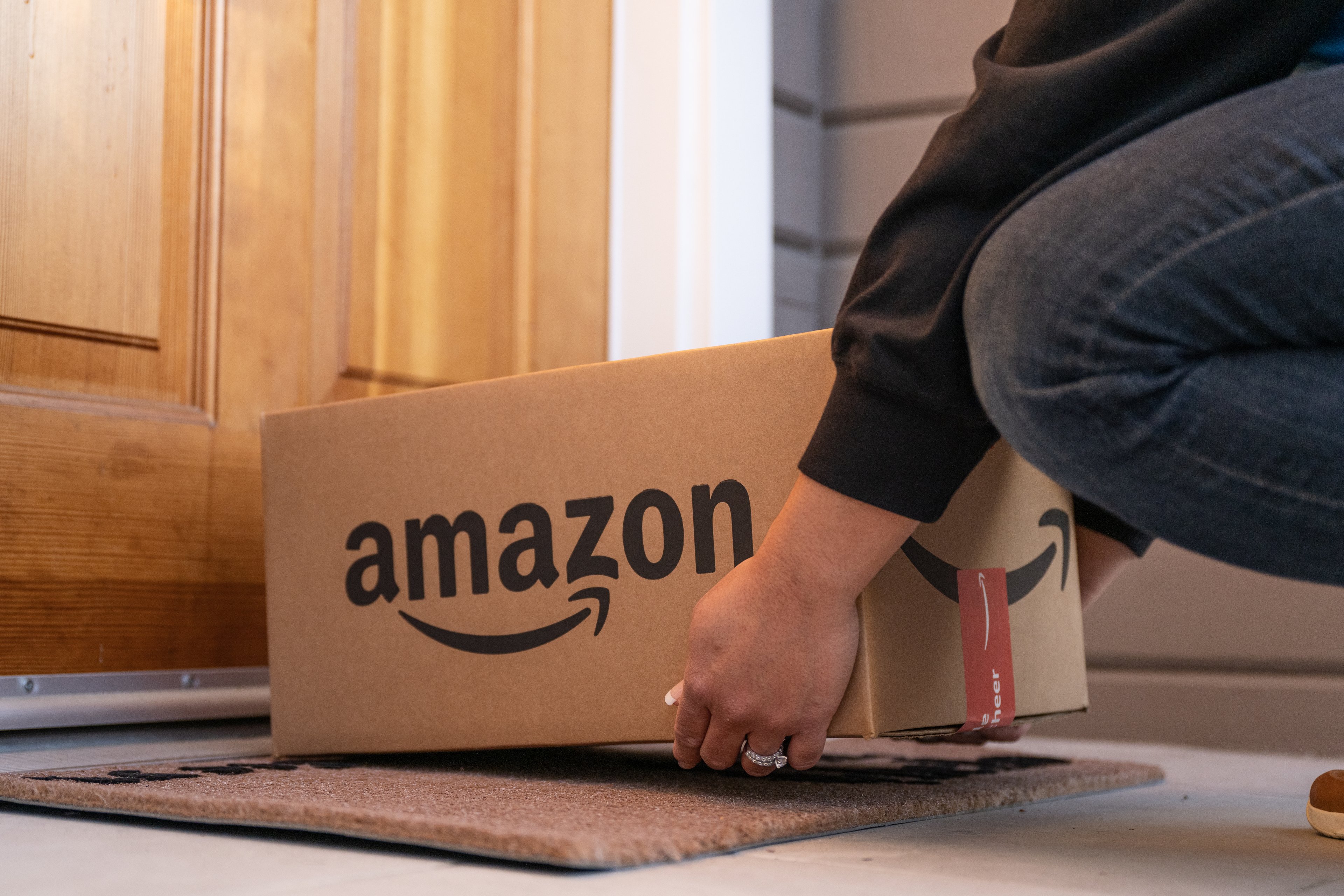Amazon (AMZN +0.66%) wants to control your home and be your digital assistant. That's why the company has been aggressively discounting its Alexa-powered devices, including various Echo models, Fire TV Cube, and the Echo Look.
These devices all allow users to use voice commands to do anything from play music or ask what the weather is going to be to control smart home devices. Amazon's Alexa-powered devices also let people order from the online retailer -- even though that's not something most people have been using them for.

Amazon wants consumers to buy its Echo devices. Image source: Amazon.
What is Amazon doing?
Since Thanksgiving, Amazon has made selling its own devices a core part of its holiday strategy. It has offered its entire family of devices on sale, with the various Echo models, Fire TV Cube, and Echo Look being marked down considerably.
The strategy worked. Customers "purchased a record number of Amazon devices globally" during the period from Thanksgiving through Cyber Monday, according to a press release. It was the biggest holiday shopping period for the various Echo devices ever, according to the company, and the digital assistant was the top-selling "product on Amazon globally, from any manufacturer, in any category."
Amazon has kept up that momentum by keeping many of its devices on sale through the end of the holiday season. Customers, for example, can buy an Echo Dot (3rd generation) for $29.99 (down from $49.99), a Fire TV Cube for $69.99 (down from $119.99), and an Echo Look for $49.99 (down from $199.99) as of Dec. 20.
Why is Amazon doing this?
The online retailer has flooded the market by offering its Alexa-powered devices at cut-rate prices. That's not the company being magnanimous, it's about capturing market share. Consumers may not be using these devices to order from Amazon in large numbers, and they may only be dabbling with using them as smart home hubs. That doesn't matter.
Amazon isn't worried about now. It wants to have a huge installed base of customers talking with Alexa. As long as that happens, the company will eventually be able to get consumers to use the devices to order from the online retailer.
This is Amazon betting that it will eventually have an easy-to-use store in everyone's living room. As consumers get used to talking to Alexa, it seems logical that they will eventually make the leap to using it for purchases. Even if they don't, Amazon can monetize in other ways as people order services through the device or expand their home automation efforts.
Is it working?
Amazon is attempting to flood the market as a way to keep Alphabet (GOOG 0.04%) (GOOGL +0.02%) from gaining market share. It's hard to know definitively if that's working, since neither company releases hard sales numbers on its devices. It does, however, appear to be anecdotally successful, as Amazon has clearly leveraged its sales platform to increase the number of homes with one or more Alexa devices.
Basically, Amazon is building an army of customers who use Alexa. They may use the digital assistant mostly to play music or to answer basic questions. That doesn't matter in the short term. They're using the platform, and ultimately Amazon should be able to figure out how to make that use profitable.








